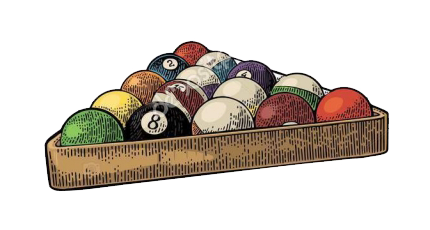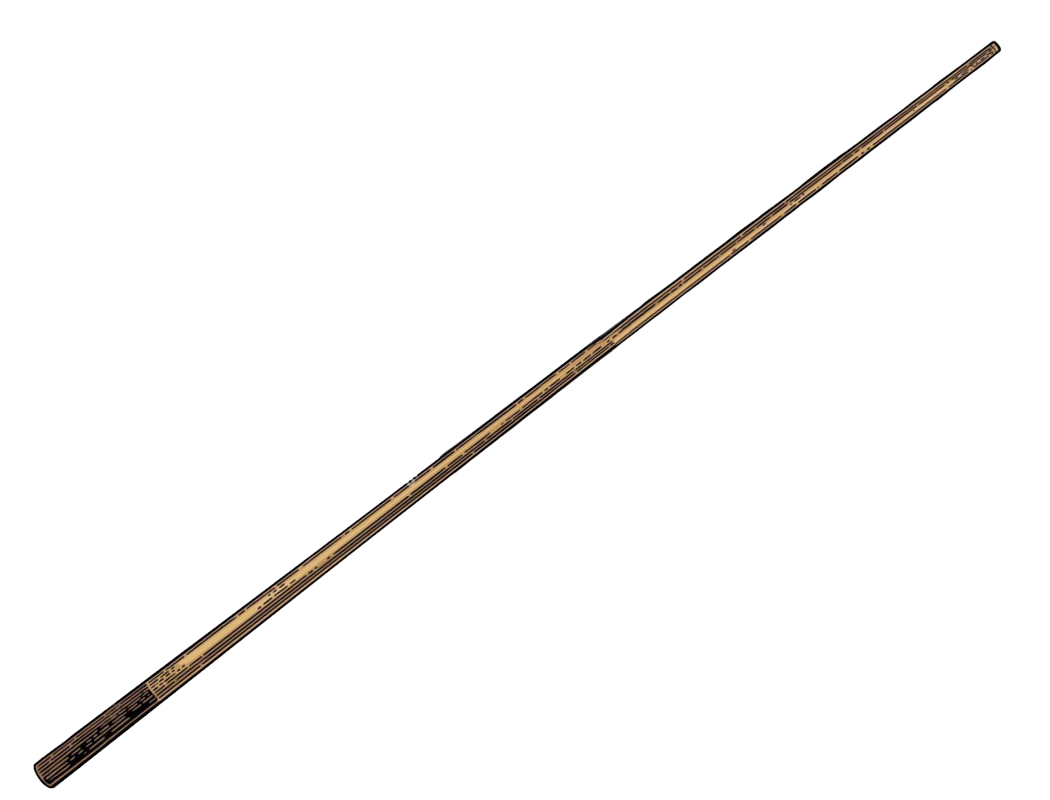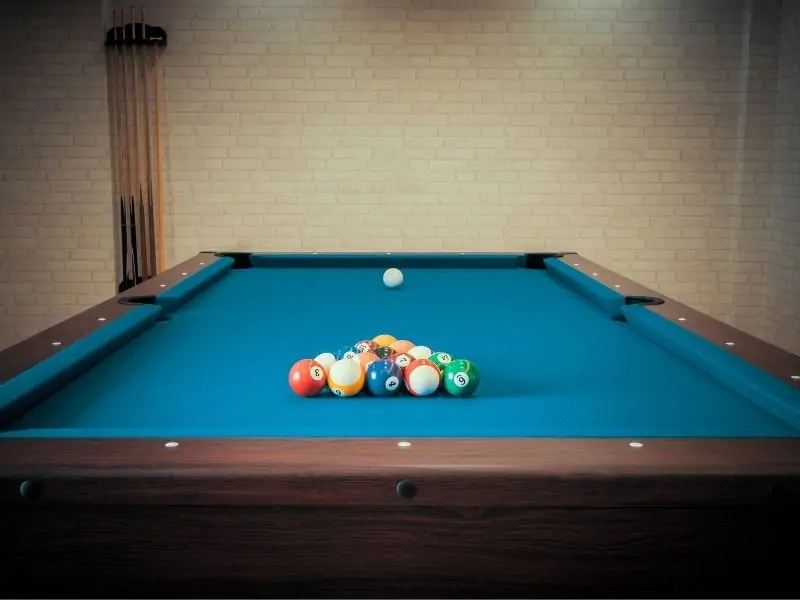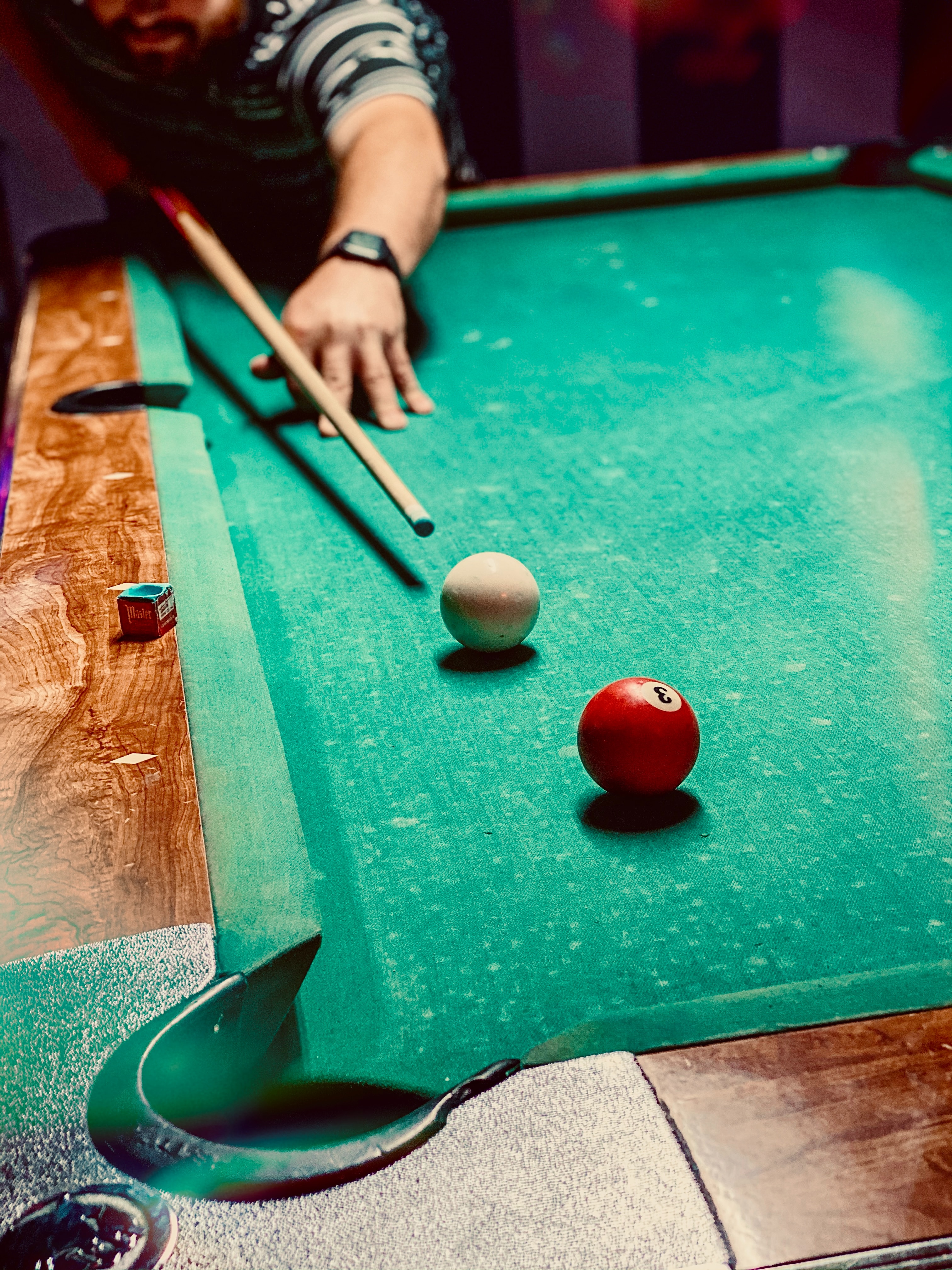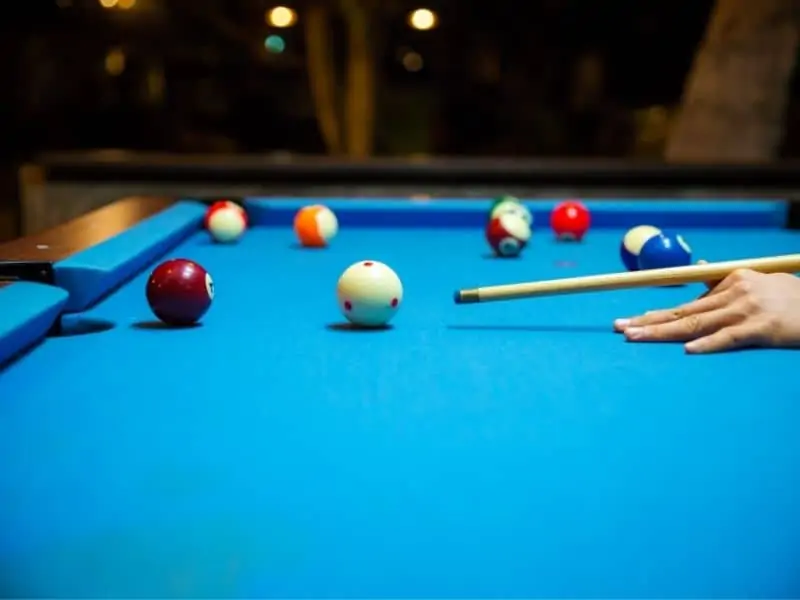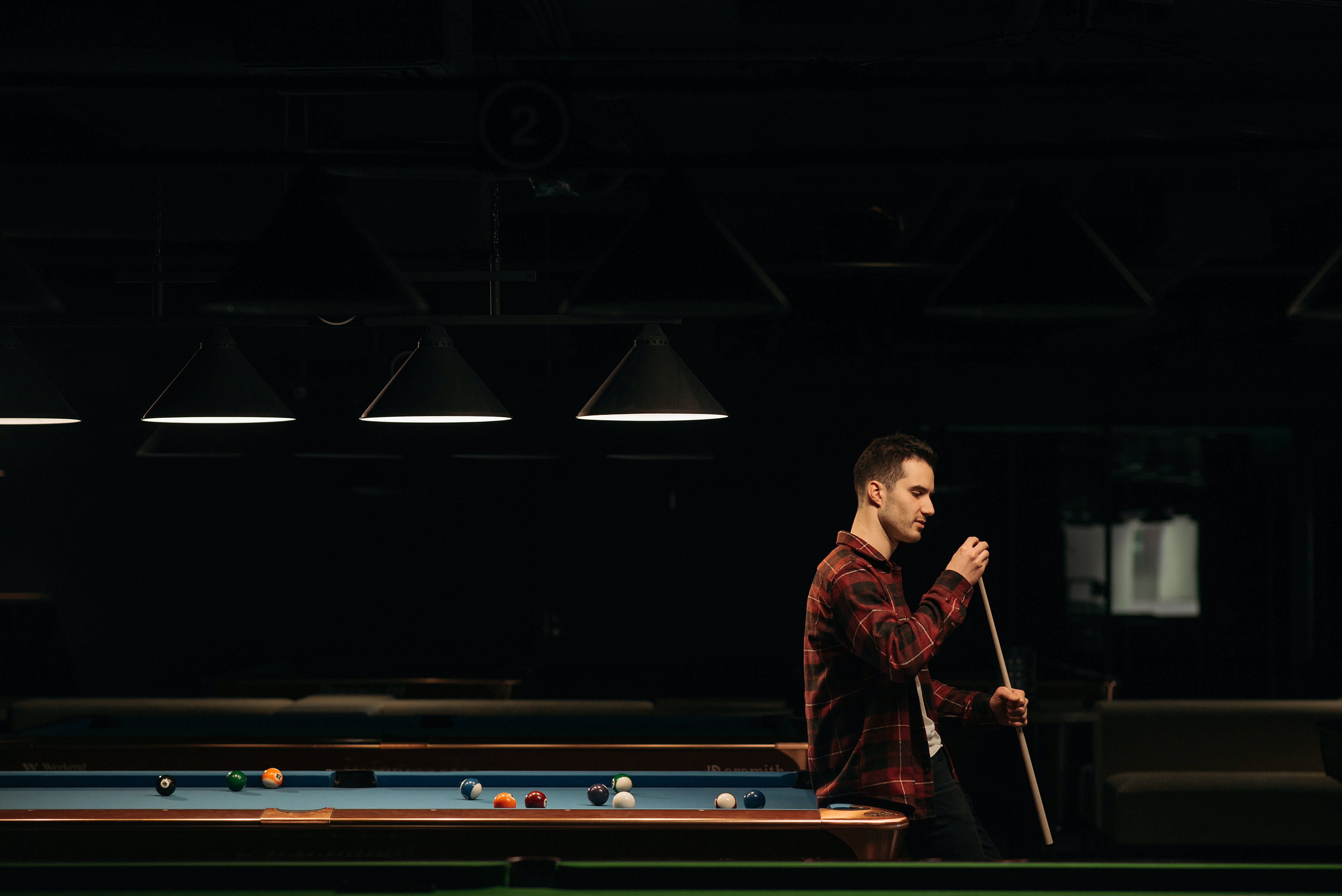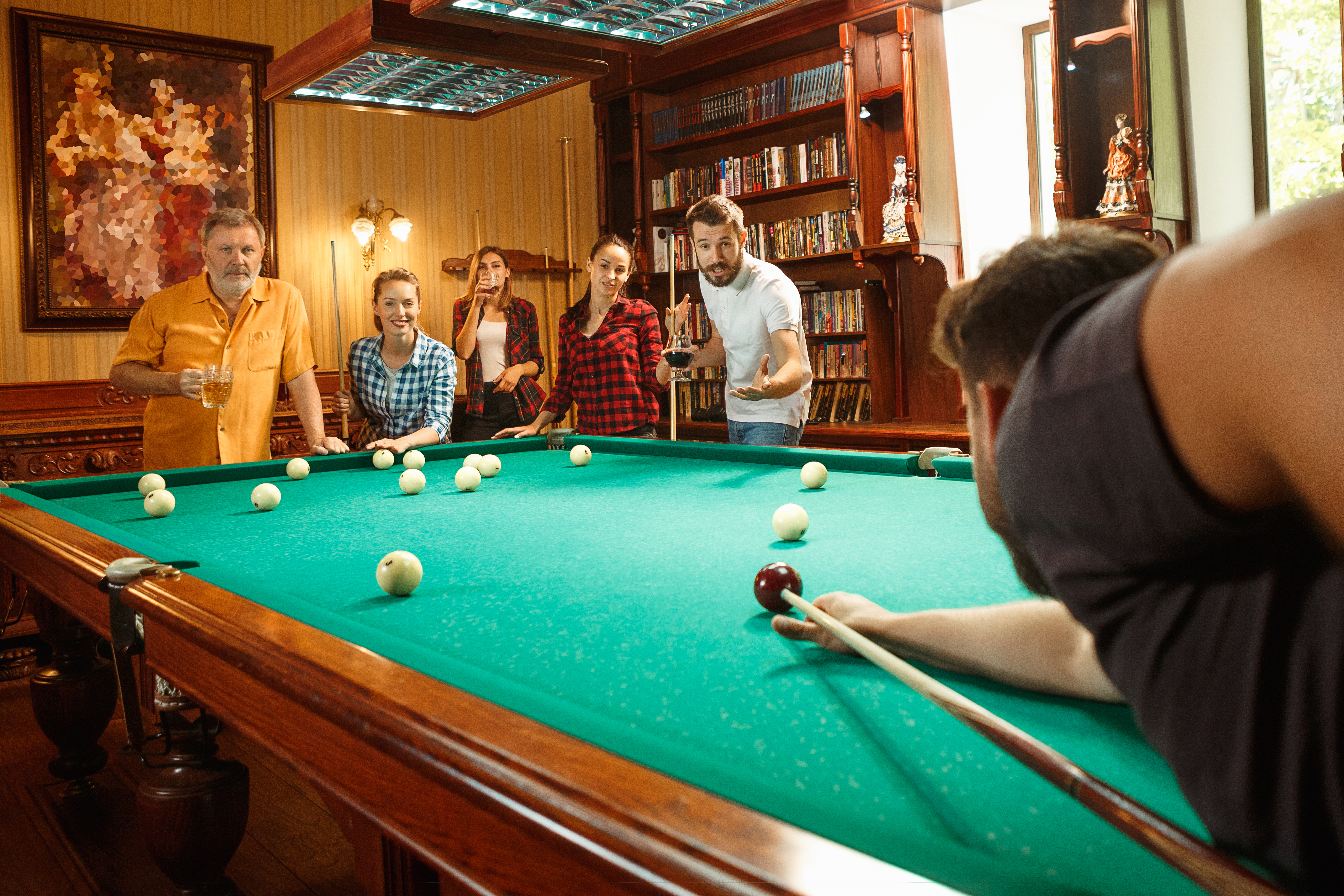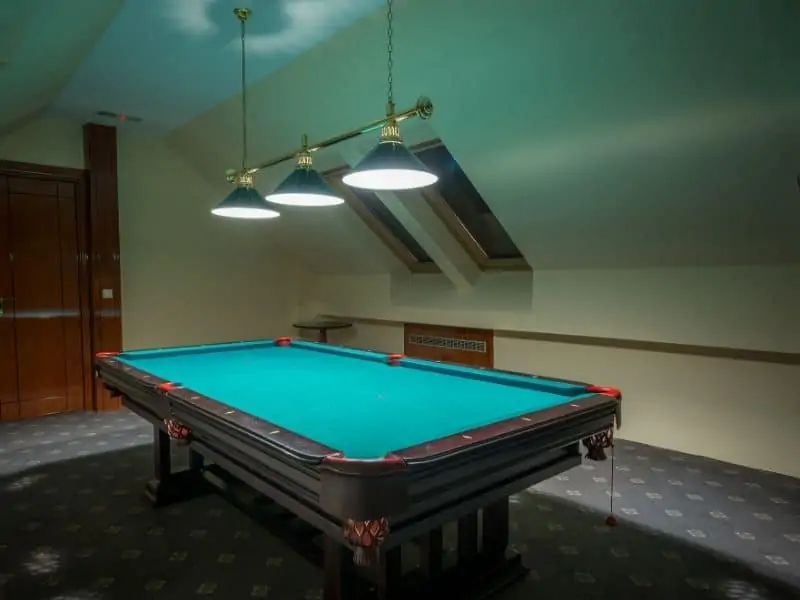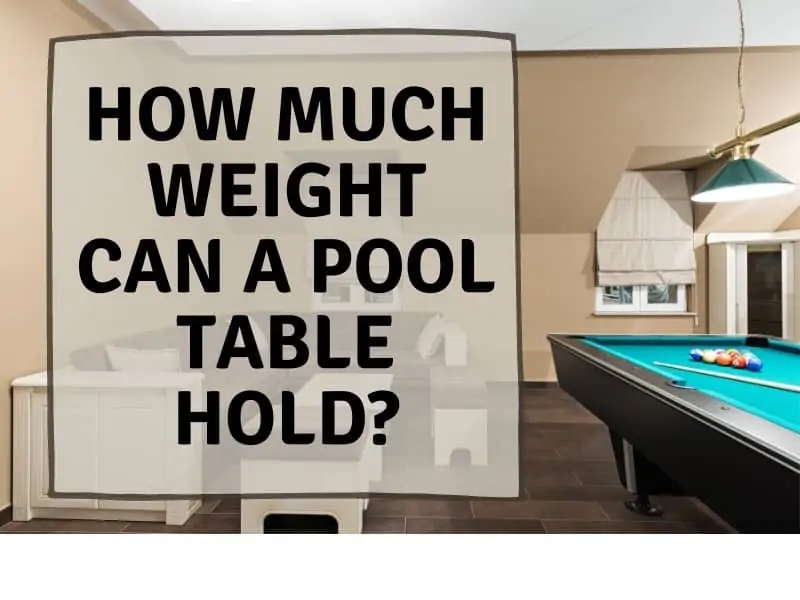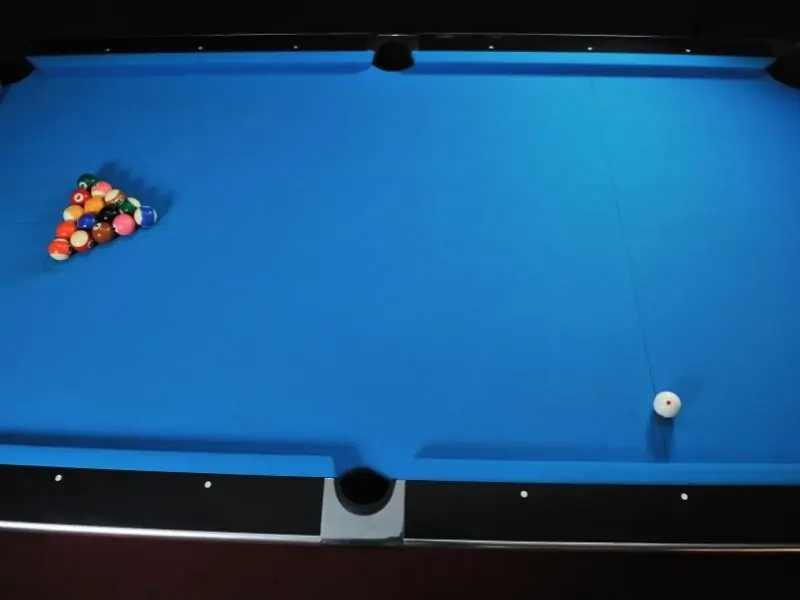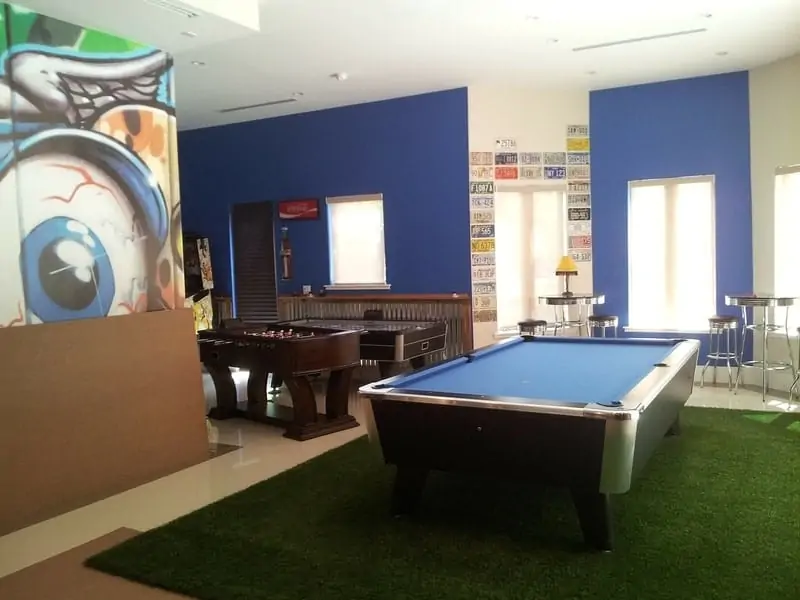You’ve just finished playing a few games with your friends. It’s time to call it a night, so you and your pals put the cues away and make sure the chalk is in its right place. But what about the pool balls? Do you put them in the pockets or just leave them as they lie? Should you invest in a case for your balls? The easiest thing to do would be to leave them on the table, ready for the next game. But should you leave pool balls on the table?
You should never leave your pool balls on the table for extended periods of time. Doing so can lead to cloth discoloration and small indentations being left in the felt. If you’re not going to be playing for a while its best to store your pool balls somewhere else such as in a case or on the rack.
So Where Should You Store Your Pool Balls?
As with almost everything else, ball storage comes down to owner preference. Since storing pool balls on the table isn’t going to do any immediate damage — and the damage it will do eventually isn’t really severe — it comes down to your preference. Still, let’s look at the best ways to store your pool balls both on and off the table.
The Best Way to Leave Pool Balls on the Table
If you’re going to store your pool balls on the table, you need to consider a few things first: The quality of the pool balls, whether you have a pool table cover, where on the table you’ll store them, and the quality of the cloth (felt). Let’s take a brief look at each of these factors.
The Quality of Your Pool Balls
The quality of the balls is probably the most important factor when it comes to on-table storage. Cheaper, non-phenolic resin balls have been known to transfer some of their color to the table over time, leaving small discolored marks. This is especially true if the table is stored in a room that’s not under constant climate control or if the table sits in sunlight during the day.
In essence, if you have low-end pool balls, don’t store them on the table. But if you have Aramith balls, you don’t need to worry about the balls transferring some of their color to the table. And Aramith balls are an excellent investment even outside of the scope of this article.
Of course, there’s the chance of other discoloration if you don’t have a table cover.

Whether You Use a Pool Table Cover
If you store your balls on the table but don’t use a pool table cover, you’ll probably see some eventual discoloration where the balls sit. This is usually more apparent if the table sits in sunlight or any other UV light for any portion of time. UV light causes the felt to discolor, and if there are balls sitting on the table, the felt won’t discolor evenly. UV light can also cause low-end balls to turn yellow, which isn’t a great look.
So your best bet is to use a **pool table cover. Heck, even if you don’t store your balls on the table, using a pool table cover is a good idea. It will keep the table’s color longer and provide protection from dust and other debris**.
Where You Store the Balls on the Table
Let’s say for a minute that you have Aramith balls and a pool table cover and you want to store your balls on the table. You can, but there’s still something to consider. If you store your pool balls in the same place (like, say, in the rack on the foot spot of the table) you could develop very small dents in the cloth over time.
It generally takes a matter of years for these dents to develop and you may not even notice them. Of course, some people like to have small dents on the table where they rack the balls since this helps with a tight rack every time. But other people would rather have nothing marring the smooth surface of their table.
If you just leave the balls lying randomly all over the table, the chances of developing small dents is negligible.
The Quality of the Pool Table Cloth
The last factor, and perhaps the least important one, is the quality of the pool table cloth. Poor quality cloth will generally fade in color faster and may even wear faster, so keeping the balls on the table when it’s not in use could affect play after a year or two.
But, again, if you use a pool table cover, you probably don’t need to worry much about this factor.
What About Storing Pool Balls in the Pool Table’s Pockets?
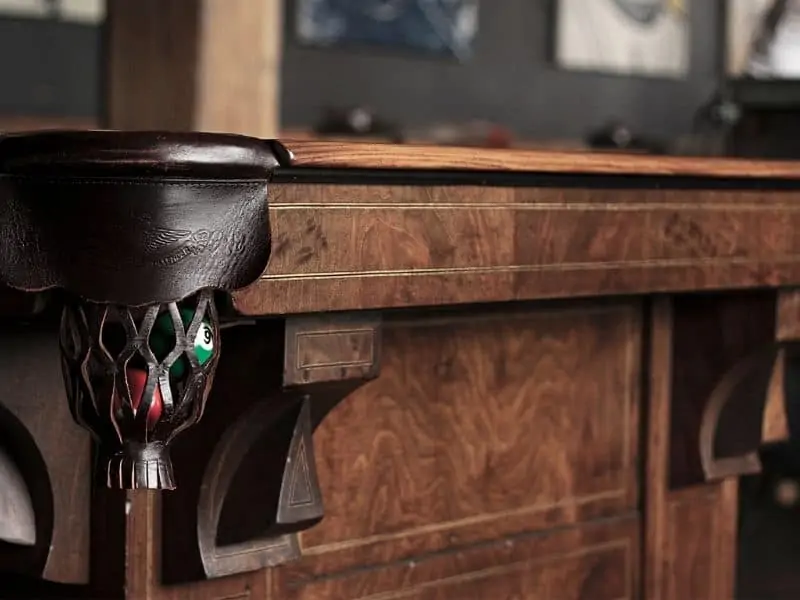
The next logical place to store pool table balls is in the table’s pockets. Again there are a few factors going into this. Mainly, the quality of the pool table’s pockets.
Pockets as Ball Storage
Pool balls aren’t light, and they will eventually stretch out the pockets a bit. If the pockets are leather, they’ll hold up better than faux leather, polyester, or string pockets. But even if the pockets do stretch out, it’s not going to affect gameplay, so many players don’t worry about this. At most, this is an aesthetic consideration.
Some people say that you can wear out the cloth around the pool table pockets, but I don’t see how this is possible if you just leave the balls in the pockets after a game is over. Unless you’re switching balls from pocket to pocket just for the heck of it (why would anyone do that?), then you shouldn’t have to worry about extra wear on the cloth.
Of course, there are those occasions where a pocket gets too full during a game and you have to take a ball or two out of the full one and put it into another pocket. But you can simply just drop them directly into the pocket if you want to avoid extra wear.
The Importance of Proper Pool Ball Maintenance
While the focus has been on where to store your pool balls, it’s equally crucial to consider how to maintain them. After all, with proper care, your pool balls can last significantly longer and provide a consistent gaming experience.
Cleaning Your Pool Balls
Dirty pool balls not only look unsightly, but they can also affect the gameplay. Dirt and chalk can accumulate on the balls, impacting their roll and causing premature wear on the table cloth.
- Routine Cleaning: It’s good practice to wipe down the balls with a soft cloth after each game. This will remove any immediate chalk or oil residues.
- Deep Cleaning: Every once in a while, especially if you play often, the balls should be thoroughly cleaned. You can use specific ball cleaners available in the market, or a mixture of water and mild detergent. Gently scrub each ball and then dry them completely before storing them.
Avoiding Extreme Temperatures
The composition of pool balls can be affected by extreme temperatures. Avoid storing your balls in areas that get too hot, such as direct sunlight or near radiators, as this can cause the balls to become misshapen. Similarly, don’t leave them in places that are too cold, as this can also affect their composition and playability.
Inspecting for Damage
Regularly inspect your pool balls for any signs of damage, such as chips or cracks. These imperfections can influence the trajectory of the ball during play. If a ball is damaged, it’s a good idea to replace it promptly.
Will Storing the Balls in the Pockets Damage the Balls?
Storing balls in the pockets may be an issue if you have low-end balls. They may eventually develop imperceptible dents after sitting against each other for so long in the pockets.
However, unless you’re keeping your balls in the pockets for months or years at a time without taking them out, I don’t think this is something to worry about. And it’s definitely not a concern if you have a set of decent pool balls.
Alternative Pool Ball Storage Options
Now that we’ve touched on ball storage on the table and in the pockets, you may be looking for alternatives. Well, there are a few good ones. Here are my top two recommendations.
Cue and Ball Wall Rack
If you have room to mount one of these racks, they’re a great investment in your game room. They keep everything in one place to keep stuff from getting misplaced.
This one comes in a few different styles (mahogany, dark oak, or black) and is made from 100% wood. You can store six cues, a full set of balls, and a table rack.

Other Articles You May Be Interested In
- 9 Tips for Racking Pool Balls Perfectly
- Is Billiards a Dying Sport?
- How To Get Better At Pool: 22 Tips For Improving Your Game
- Billiard Games: 14 Pool Table Games You Have To Try
- Billiards vs Pool vs Snooker: What’s the Difference?
